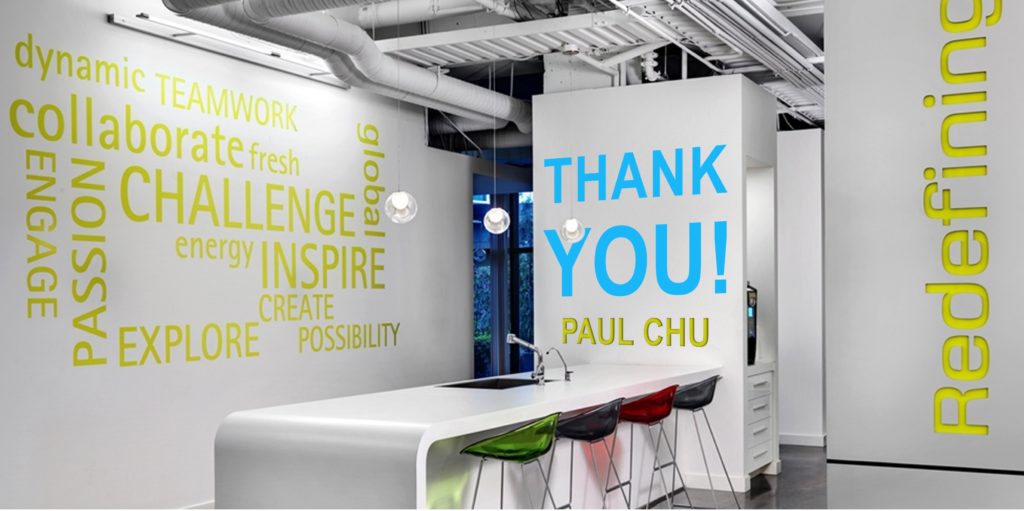Looking Back: A Retirement Interview with Paul Chu
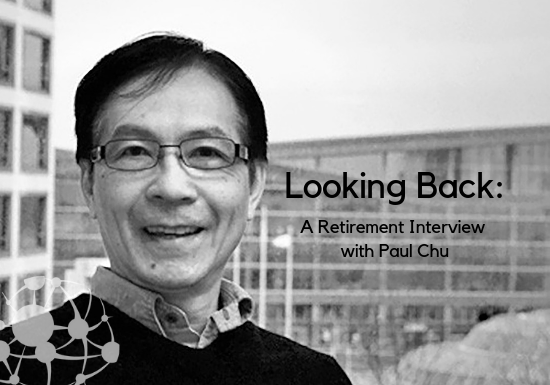
On Wednesday, October 31, 2018, Paul Chu bid farewell to the Integral Group family after a long and successful career. Paul Chu has helped shaped Integral Group into what it is today as one of the pioneering engineers who helped establish an electrical department at the firm.
On a sunny Thursday afternoon, we took the time to speak to Paul about his career, life with Integral and upcoming adventures to follow a well-deserved retirement.
A little bit about Paul Chu…
Originally, Paul began his professional life as a post-secondary educator in Hong Kong. In 1970, he relocated to the United States on a Student Visa where he could pursue engineering training, and graduated in 1974. In his 2nd year, Paul got his very first job in the engineering field as a part-time Junior Engineer—it was this job that gave him his first bit of insight into the industry, where he learnt the building blocks of electrical design and what engineering entailed.
He later moved to Los Angeles where he was employed at his second engineering job. While the Student Visa allowed Paul to attend school in the US, the downside was that his time in the US was limited; he could only stay for an additional 1.5 years following his graduation to complete his practical training. Due to Great Britain’s occupation of Hong Kong at that time, the immigration process was complicated—US residency was next to impossible to obtain. Canada it was!
Upon completion of his practical training, Paul packed his car and drove north of the border, beginning his new life in Vancouver, nearly 40 years ago.
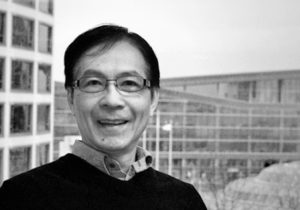
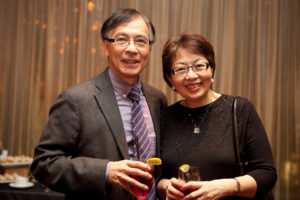
What inspired you to become an engineer?
“The education system in HK is—I don’t know whether it has to do with British influence—they kind of slot you in, whether you’re a science major, or arts major. I was slotted in as a science major. At the time, I was interested in electrical engineering, so that’s the field that I got involved with. At least, that’s what I applied for when I went to University. I found it to be interesting.”
What is it about electrical engineering that drew your interest?
“I find that it is a clean source of energy to start with. You need electricity to run buildings, to run whatever you do. The power engineering is what I’m interested in, versus IT or computer-related fields.”
How long after you moved here did you get your job at Integral Group?
“That was quite a few years ago. I worked at a private consultancy, back in 1976. The first company I worked for, I worked at for nine years. It was a small company—I was able to become a partner in the company after nine years. There were three partners. I joined together with one of the partners, and we started a company. I was with him for about another nine years. Then Shail Mahanti came along, and we formed another consultancy. And about 15 years ago, we joined the Integral family. They wanted to start an electrical department [in Vancouver] and we became a part of this firm. We helped them kick-start the electrical engineering department. That was 15 years ago. Now I’m the only guy left over from that particular era, after Shail retired last year.”
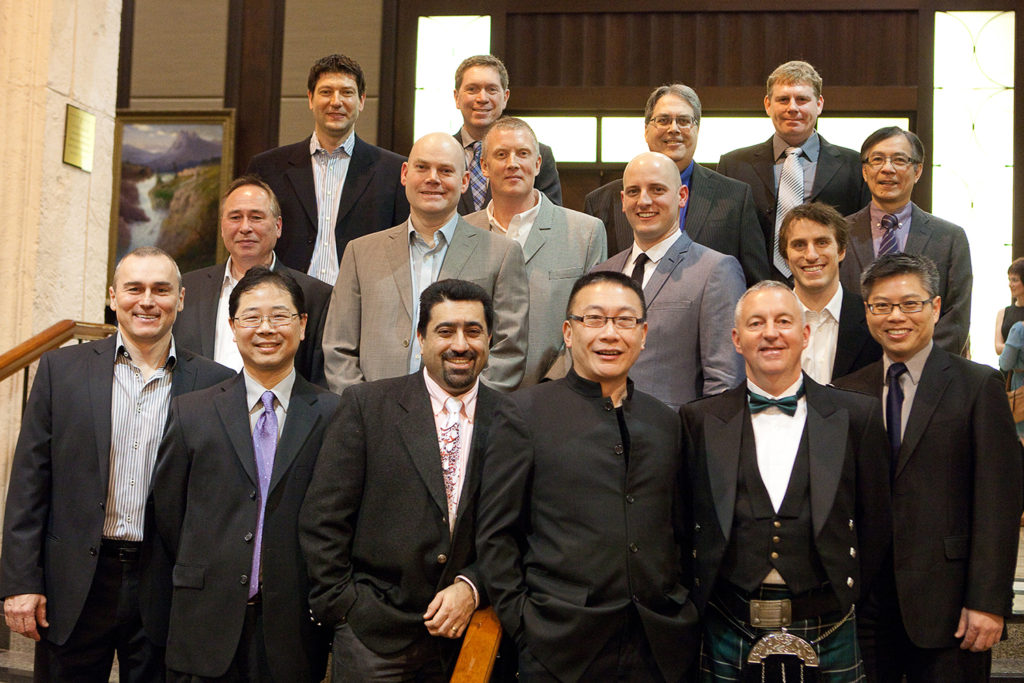
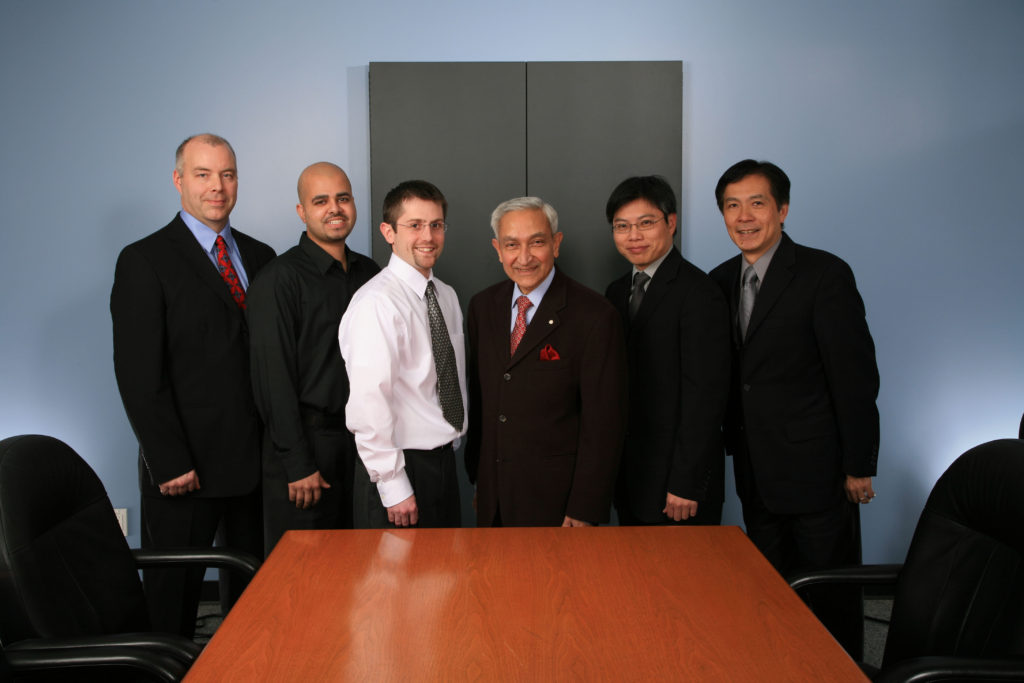
What drew you to Integral Group originally?
“At that time [before Integral], our company was small. We saw that there was an opportunity to help start the electrical department with a much larger company. At that time I think the firm had a staff of around 60-70 people already, which was pretty big for a mechanical plumbing consultancy, so we thought there might be a better opportunity to work on ‘larger projects’. In a small consultancy, you don’t have the chance to work on larger projects, so that’s one of the reasons. The challenge to start an electrical department is another thing that drew me.”
Was there anything about Integral’s values that you found appealing?
“We had a chance to work with them already on some projects, so we knew, by looking at some of the jobs, some of the projects they provided, we found that they were of good quality.”
So you had a bit of an existing relationship?
“Yea, because basically we worked more with mechanical engineers than we did with our electrical peers because we are in competition; we don’t work in the same job. But with mechanical people you are constantly working with them on every job.”
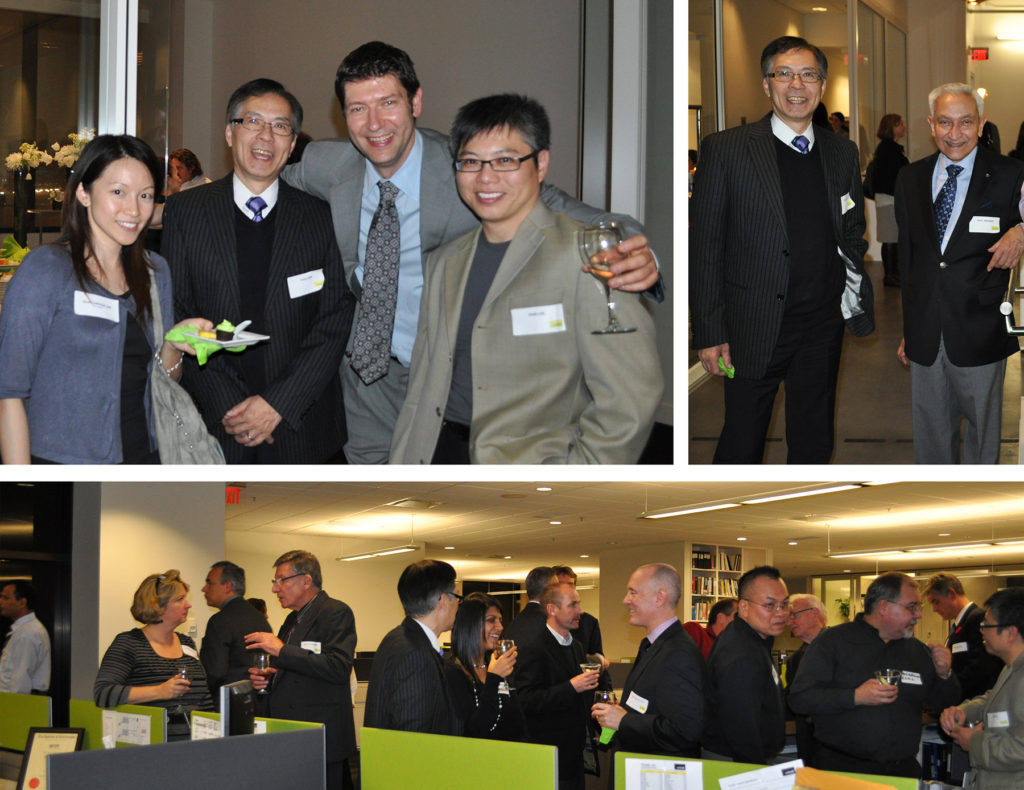
What do you like most about Integral Group?
“Basically, when you work at a firm, an important factor is the people you work with. The people around here, they are all hard-working. I don’t see too much office politics. Even though I don’t work with you directly, I know I can speak with you if there is a problem. And likewise, if you have a problem, you can always come to me and we can always talk. I find it to be very refreshing as we get people from different areas, from different fields. We’re kind of like a family even though we have more than 100 people around, and to be able to do that is not an easy thing. I think even the people leading the company, they’ve got the policy that their office is always open, and if you have a problem you can always go talk to them. There’s no such thing as a silly question. They encourage people to ask questions, and that’s where you help the Juniors and give them the confidence so that they always know that they are being backed up.”
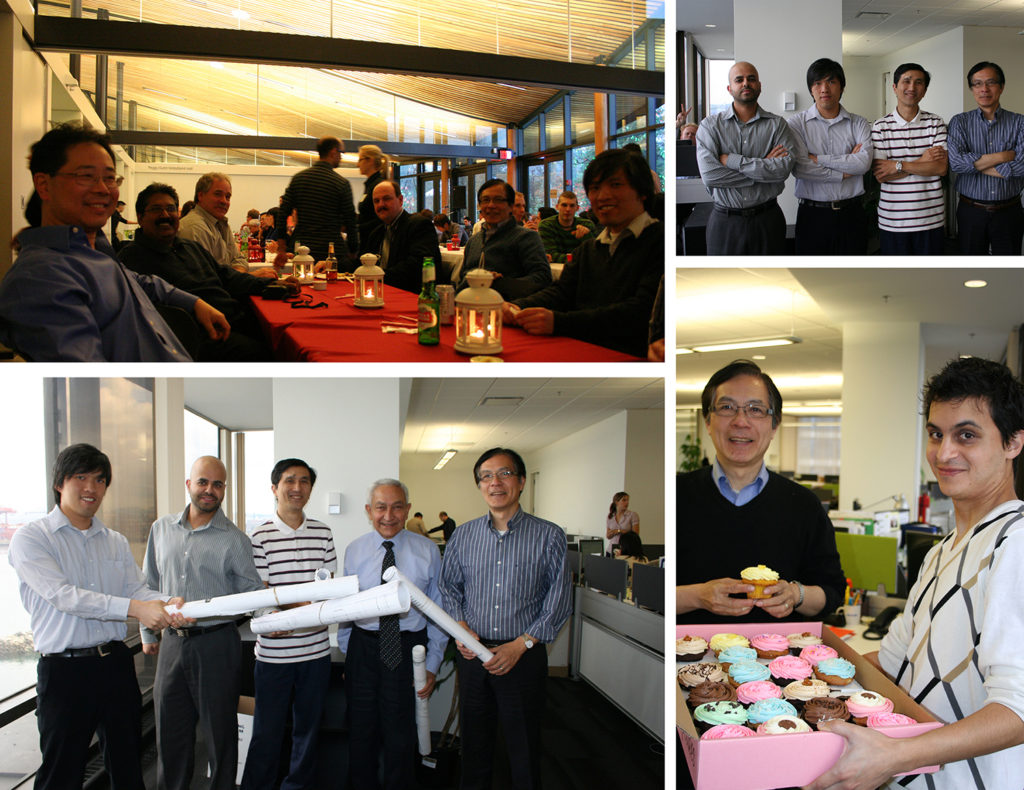
What has been your favorite project, and why?
“I think my favourite project is…it’s a smaller project actually. I was working on a project called the Whistler Athletic Complex. It is not a big project, but it is a lighting project basically, because inside the building there’s not much electrical to speak of. The lighting of the building was pretty challenging. How do you bring out the shape of the building? We worked with the architect to make sure the lighting complemented the building and brought out most of the features of the building. I found it to be challenging.”
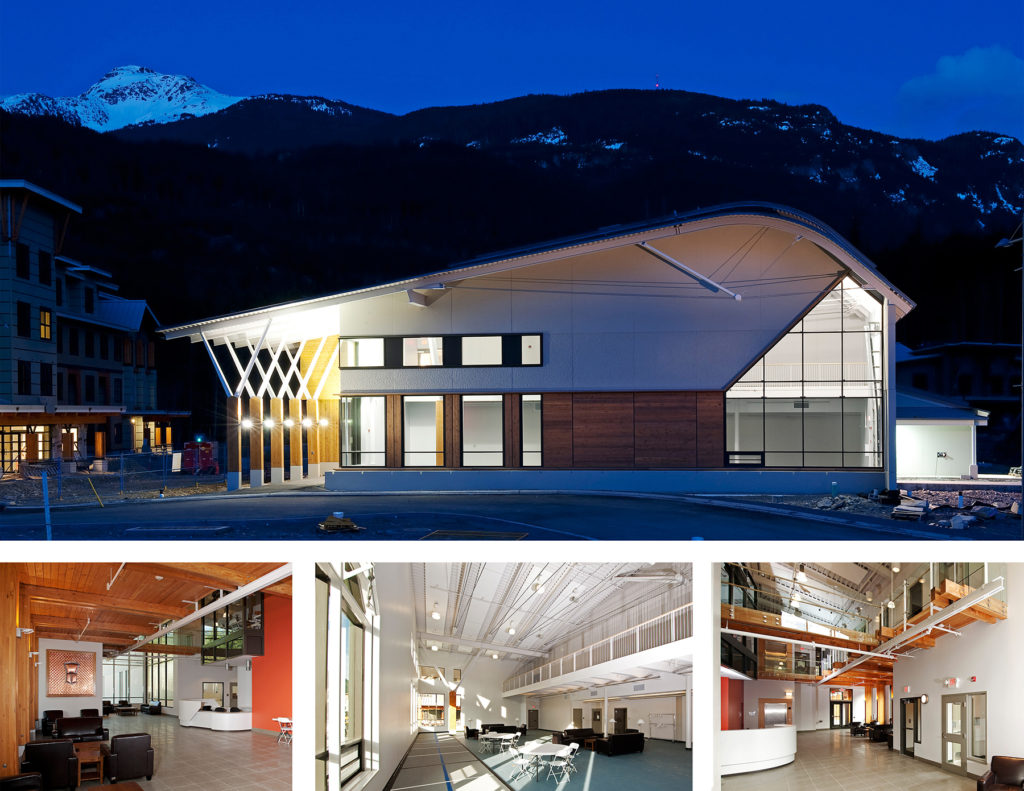
Whistler High Performance Athlete’s Centre, Whistler BC
What has been your most challenging project, and why?
“The most challenging project is always going to be a new project. Nothing you have done before—not the stuff you’ve done 6-7-20 times, just a repeat of the other ones. The most challenging project was a project down in the US. It wasn’t a complex project, but we had a consultant working down there on our behalf and some of the initial phases and monitoring were done here. But the guy who was working down there—there were complications and he had to leave the project, and the job was left hanging there. I had to take over, so I had to start working with the American imperial system, and tried to see how things were being done. So I ended up having to go down there to see the electrical inspector. I had to sit down with him for almost four to five hours. Not just once—I was down there two to three times during the whole process of the project. It turned out to be a challenge but we were able to finish up the project. We had to work hard and study all the details, things that you usually take for granted.”
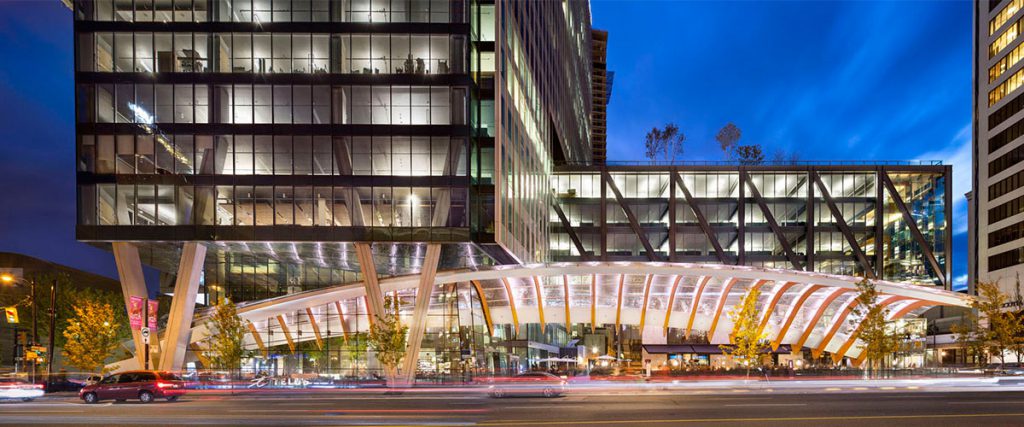
Telus Garden, Vancouver BC
What is your funniest/best memory at Integral Group?
“I guess it was some of the Christmas parties we had. We had a chance to meet some of the husbands and wives of our colleagues, and people are all dressed up—you don’t recognize them. It’s always kind of a more festive mood. Sometimes you see the other side of someone you’ve never seen before, loosened up, so that was fun.”
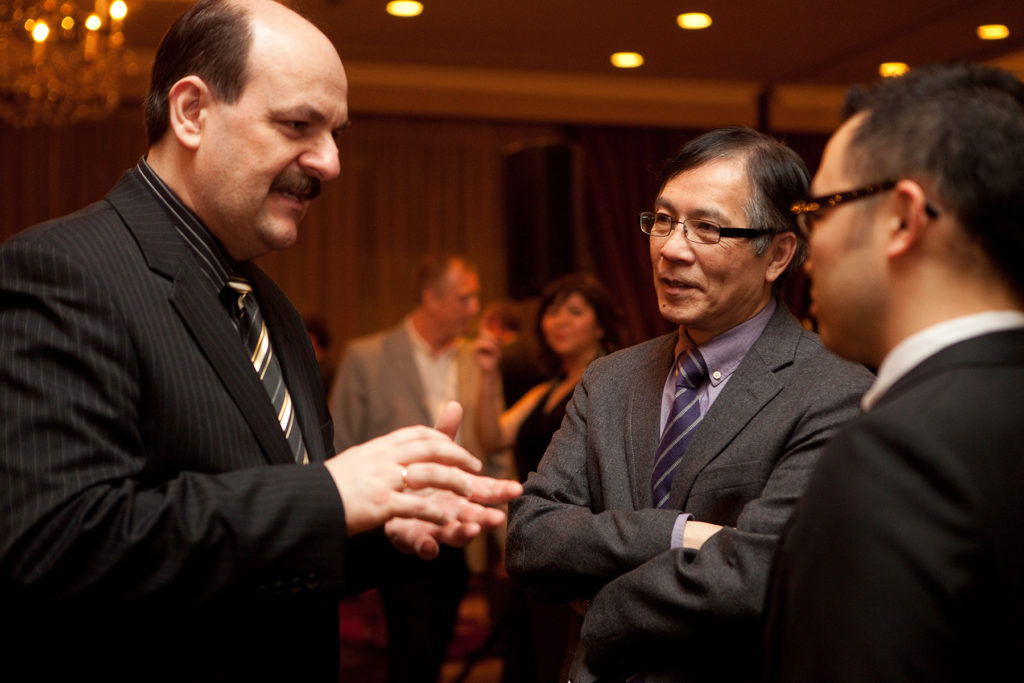
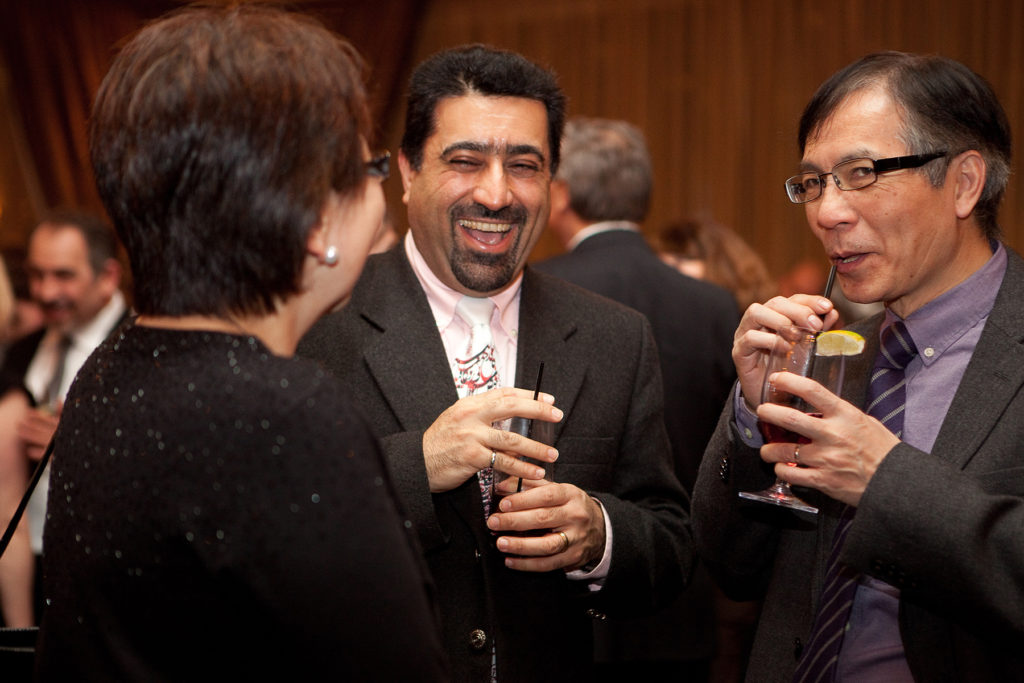
If you could do another job for just one day, what would it be?
I wouldn’t mind going back to the University and to work there for just one day, as an instructor, and talk about what I’ve been doing in the electrical consultancy field—sharing my knowledge. That would be a fun thing to do just for the day.”
What has changed about the industry since your time starting?
“Well basically, it’s the use of the computer. Back then all drafting work was being done by hand. It was all manual—you have to use pencils, you have to use ink, but nowadays it’s all computerized so that’s one major difference.”
What about the shift towards sustainability?
“Yea, in terms of design and philosophy and so on, it’s greener. People are more conscientious about energy usage.”
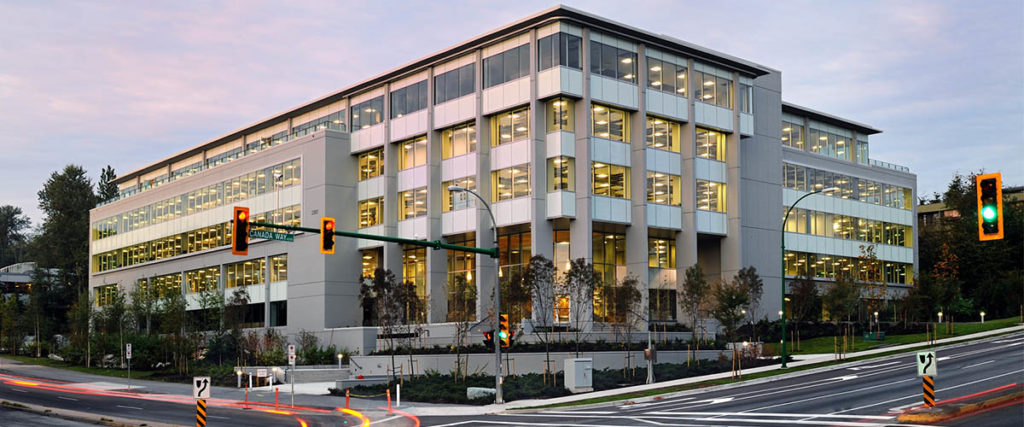
Discovery Green, Vancouver BC
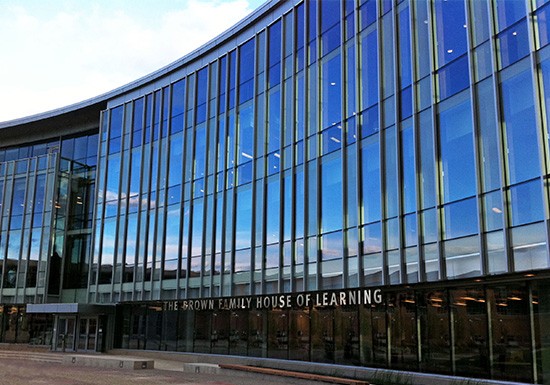
Thompson Rivers University House of Learning, Kamloops BC
What do you find most challenging about this industry?
“Always trying to find the balance—trying to find a good fee and do a good job. It’s always a challenge. Because you have to stay competitive with your fee, and yet when you first get your job there are so many unknowns. It’s very hard to cover all grounds. So when you do get a job, you may find that we don’t have the money, or it is more difficult than we thought it would be. So what do you do? Do you make a compromise? Or do you just bite the bullet and say that this has to do with our integrity? It has to do with the way we do things. So it’s always a balancing act. And then again, finding the right people to do the right job is always difficult too.”
What advice would you give to aspiring, young engineers at the firm?
“I would tell them to be patient. It’s important that they be patient. Because in our industry, you don’t get your reward right away—there’s no instant gratification. So you have to slowly build up your value, you have to slowly build up your experience. Once you’ve reached that particular point, then you can command more money, right? But before that you have to be patient and if you are in a position as a junior, you should learn everything you can as a junior, before you move up to the next level, and then you learn everything you can on that next particular level and be patient about it. It might take you slightly longer than if you go into another industry, but the end result is that you will reach more or less the same point. We are in the building industry. The building doesn’t come up just like that. You have to finish the design and everything—you have to wait two to three years. You have to realize that’s the way it is.”
What will you miss most about your team?
“Well the people that worked for me, my team, as you know, I turned over to Gary, and then I retired. Sometimes you’re apprehensive, whether I should be sticking around, when I should keep my mouth shut. Even before when some of the guys who used to work for me would try to come to me for something, I tried to kind of push them away, telling them to go to Gary or whoever first. So with the team I would say, I was respected, and I respect them, so I would miss that part—the interactions with them. They would come along with questions, and I would sit down with them, and they are a friendly bunch. We laugh a lot. Just last Thursday, a bunch of the electrical guys all went out for dinner and we had the best time.”
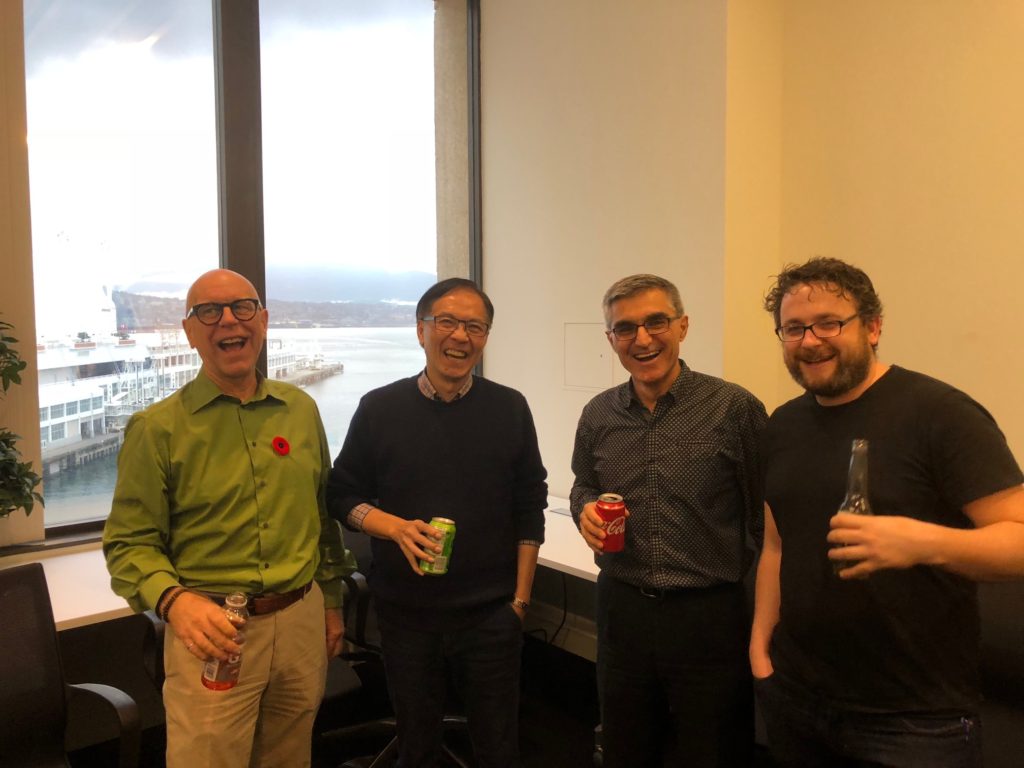
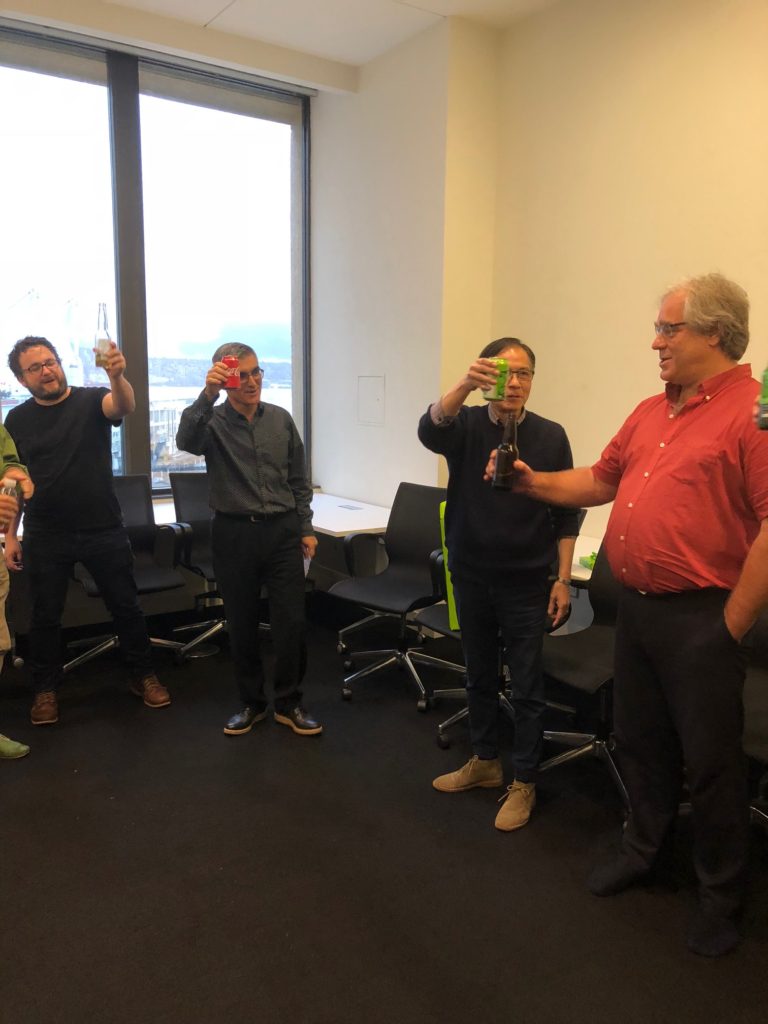
What are your hopes for our industry?
“The hope of the industry, like any other industry, is on the future of the company. And the future of the company lies on the young engineers or new hires. How do you foster them? How do you back them up? How do you make sure they stick around and carry on the same philosophies you have, and at the same time be able to improve what you’re doing? I think it’s important as a company that we focus on those people to give them the right training, the right leadership so that the industry can sustain. Instead of, you know, some firms, they are squeezed in terms of money, budget and so on, so they don’t necessarily spend the time to train new people. Instead they try to snatch them from Company B and C, and after a while, you don’t have a new pool of talent. In Vancouver it’s definitely good to draw people from other parts of the country, simply because it’s very expensive to stick around Vancouver. You need to nurture the people that we have—spend the money, spend the time to do that. That’s my take on things.”
Plans for retirement?
“Initially, me and my wife would like to do a bit of traveling to places we would like to go to but never had the chance time-wise. Before we get too old, we want do a bit of travelling first.
Whereabouts will you go?
“We would like to go to different countries—we’d like to go to more European countries, Asian countries, we’d like to go down to Australia—those are the initial places that we’ll be kind of finding our way around.”
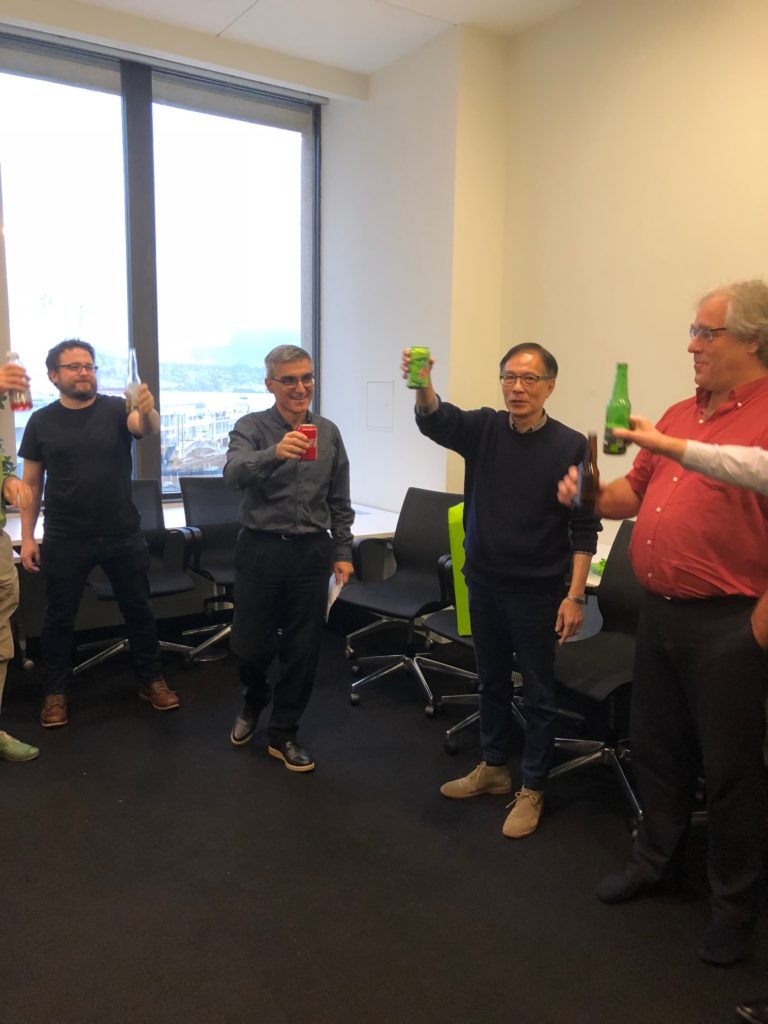
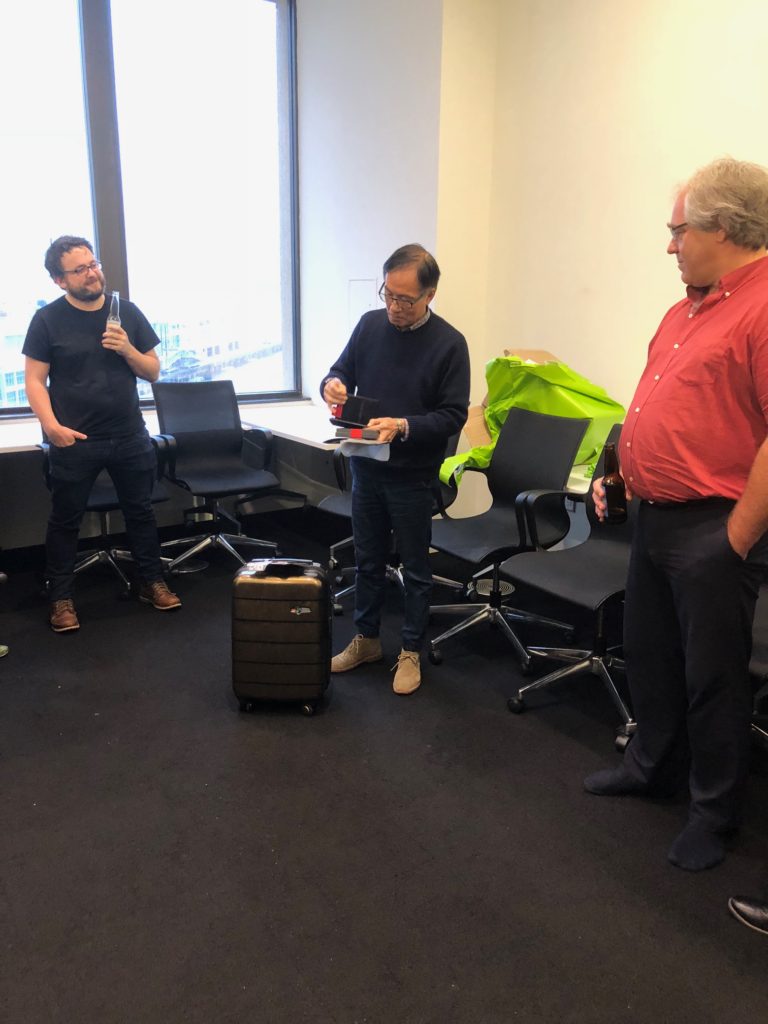
Paul’s farewell party, October 30th 2018
Some sentiments from the team…
I worked with Paul only for the last six months, but I can say that in this very short time, Paul inspired me like nobody else in my career. His high level of integrity and professionalism are exemplary. I will miss Paul, and I wish him and his family all the best! – Anca Cojocaru, Electrical Associate
Thanks for all the professional and life advice you provided to me during this two year period and don’t worry I won’t let you run away 😛 . Not sure if you notice I’m counting how many time you say ‘you know’ in each our conversation, ‘you know’. I will miss this game for sure. Thanks again for showing me what a real professional engineer is. The Chu power will continue! – Billy Su, Electrical Designer
Paul, you have been an amazing mentor and friend to me over the last few years. We’ve been through a lot and it’s been great having someone like you to always be there to give advice and make a joke. Hope the retirement is a good one. – Padraic Greed, Senior Electrical Designer
In the past 3 years I have seen him nurture younger engineers and accompany them in their career path. You ask Paul a technical question and he will get back to you with the answer and most importantly he will support the answer with reference to relevant code and standards; and to make it complete he will even attach a hard copy of the section of the document he is referring to. One of Integral Group’s commitments is “Nurture” and Paul is an embodiment of this crucial principle of our business. – Bruno Vahedi, Electrical Principal
Sometimes working with Paul Chu, I feel like I am working with the “Joker”. Nothing will get Paul mad and angry; he always has a smile on his face like the Joker who has a smile painted on his face. He always has a calm and peaceful demeanor that settles any tense situation. – Ivan Lee, Electrical Principal
